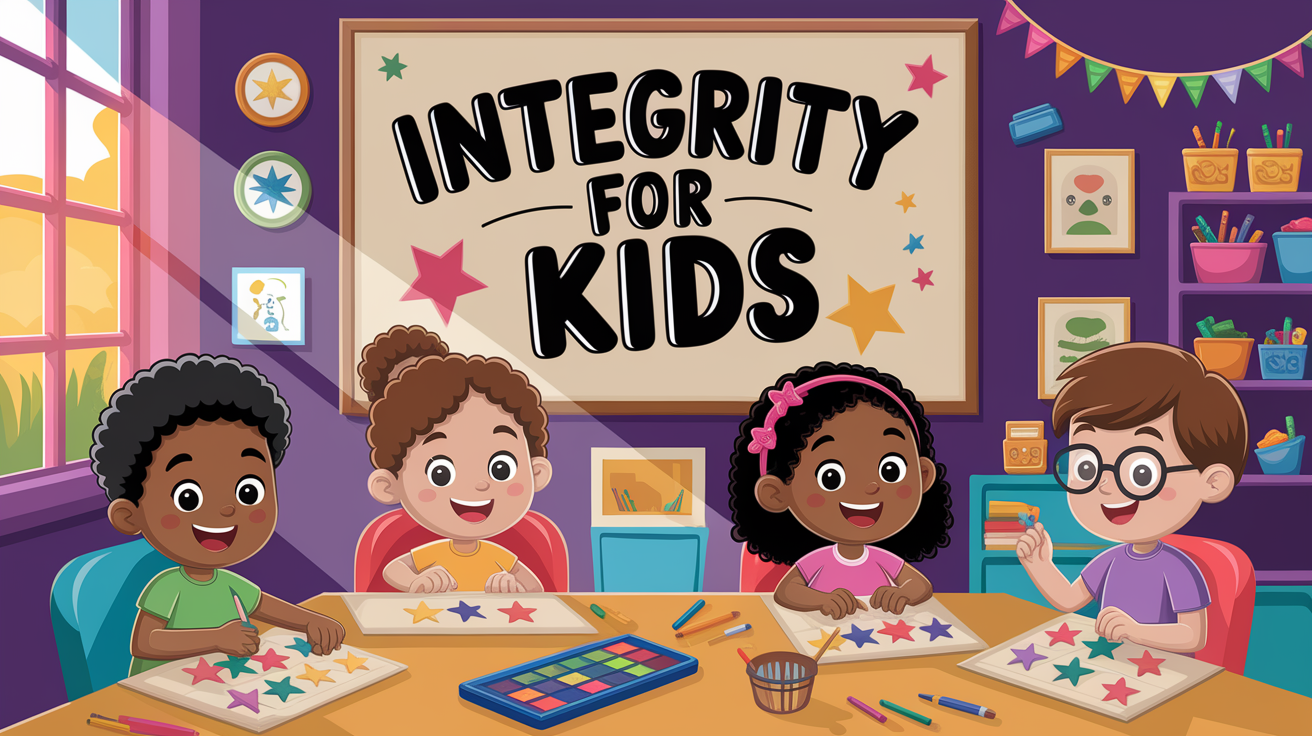
Integrity joins other good values like kindness, respect, and responsibility as key building blocks for a child’s character. Children who develop integrity grow into trustworthy individuals who make positive choices based on strong moral principles.
Along with honesty and responsibility, integrity forms the foundation for good character that lasts a lifetime. Integrity means doing the right thing even when nobody is watching.
It means staying true to your values in both words and deeds, no matter the situation. Are you ready to learn how to help children develop this important value?
Let’s explore practical ways to teach integrity in young minds.
What is Integrity for Kids?
Integrity for kids means choosing to do what’s right based on good values, even when it’s difficult or when no one is looking.
When children develop integrity, they build a strong inner compass that guides their actions and decisions throughout life. Children with integrity understand the difference between right and wrong and choose to act according to positive values.
This quality helps them become trustworthy individuals whom others can depend on. As children grow, integrity becomes a foundation for healthy relationships, better decision-making, and strong self-esteem.
When kids practice integrity regularly, they develop consistency between their words and actions. They learn to keep promises, tell the truth, and take responsibility for their mistakes.
These behaviors create a positive ripple effect in their families, classrooms, and communities.
Importance of Developing Integrity in Kids
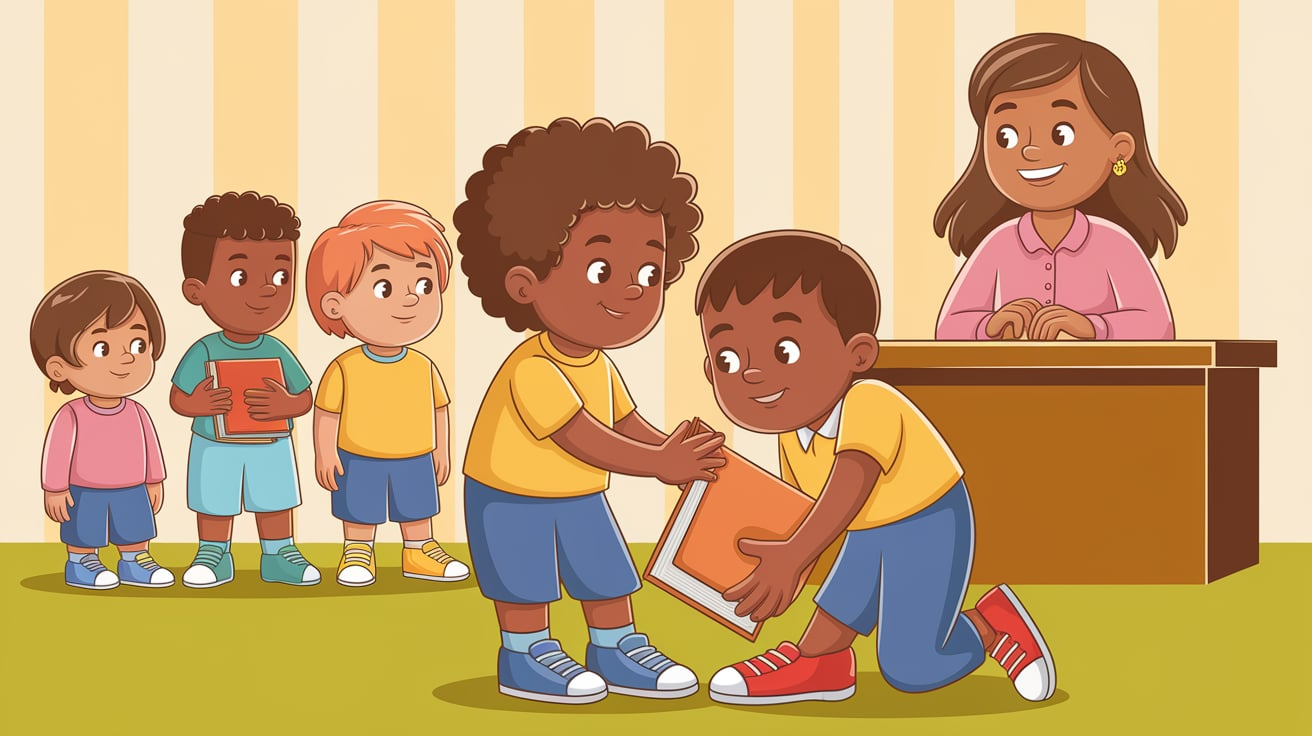
Developing integrity in children creates a foundation for their character and future success in all areas of life. Fostering integrity in children not only shapes their moral compass but also equips them with the courage to make principled decisions even when faced with difficult choices or peer pressure.
Here’s why integrity matters so much for children:
- Builds trust and strong relationships: When children practice integrity, others learn they can be trusted, leading to deeper friendships and better connections with family and teachers.
- Develops self-respect: Children who act with integrity feel good about their choices and develop healthy self-esteem.
- Creates better decision-makers: Integrity helps kids make thoughtful choices based on values rather than peer pressure or immediate rewards.
- Prepares them for adulthood: Children who understand integrity early are better prepared to handle complex ethical situations later in life.
- Creates positive learning environments: When students act with integrity, classrooms become safer and more supportive places to learn.
- Contributes to community well-being: Children who value integrity grow up to be citizens who contribute positively to society.
Helping children develop integrity today prepares them to become the trustworthy leaders, friends, and community members of tomorrow.
Activities to Build Integrity in Young Hearts and Minds
Engaging exercises create meaningful opportunities for children to recognize, value, and internalize integrity as a core part of who they are and how they interact with the world around them. Looking for ways to help children understand and practice integrity? Try these simple but powerful activities:
1. Honesty Jar
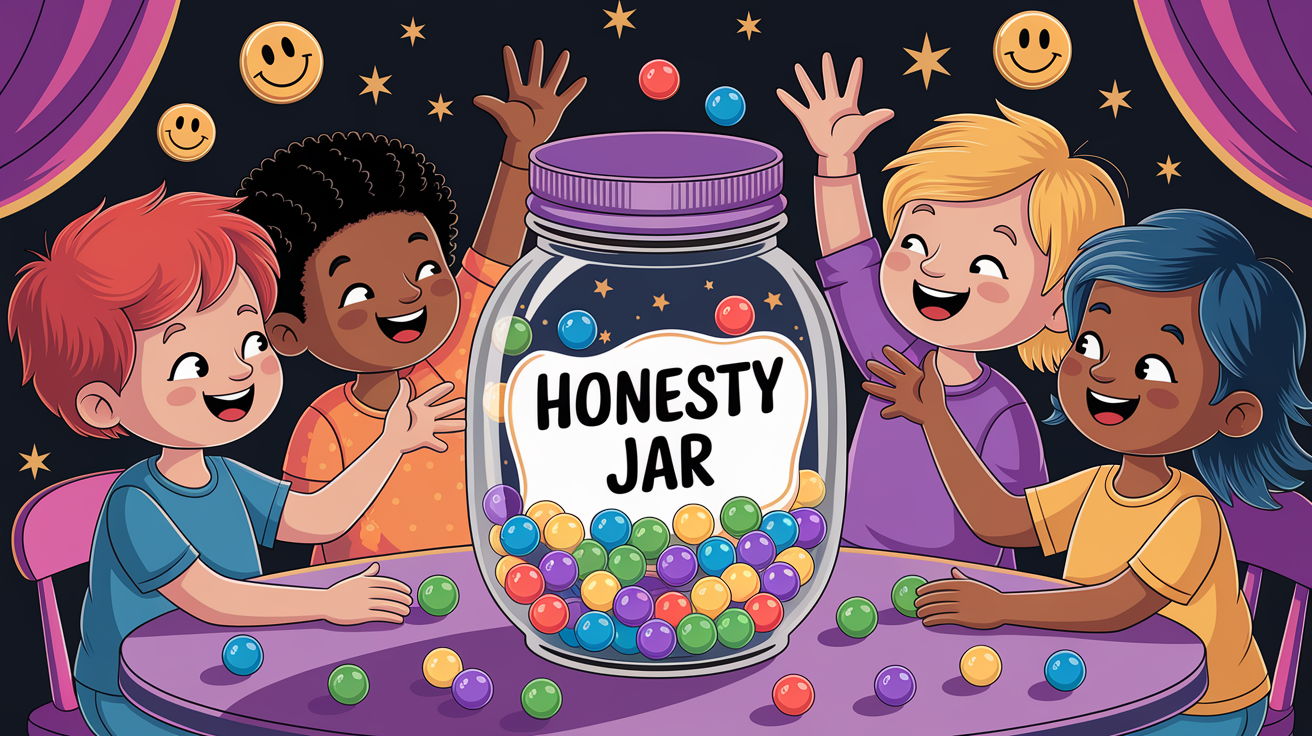
Place a clear jar in a spot where kids can see it every day. Every time a child tells the truth, even when it’s hard, they get to put something small into the jar, like a marble or coin.
Over time, the jar fills up with honest moments. When it is full, the group can enjoy a small reward, like a special story time or fun activity. This helps kids understand that being honest is something good and worth celebrating.
2. Role-Play Scenarios
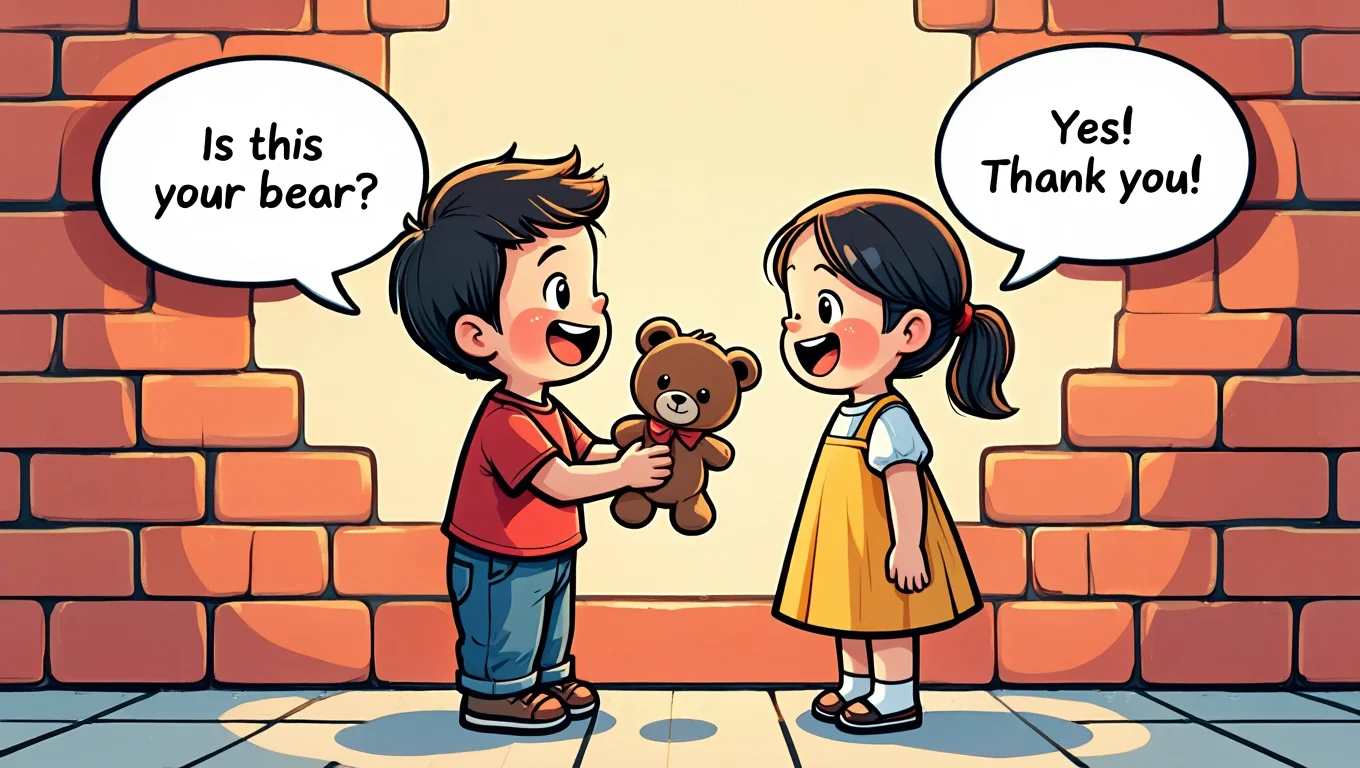
Set up pretend situations where kids can act out choices. For example, someone might find a lost toy or see someone cheating on a game.
Let the kids take turns acting and saying what they would do. This will help them think about real-life problems and practice making good choices. It will also help them learn how honesty and kindness are part of doing the right thing.
3. Truth vs. Lie Sorting Game
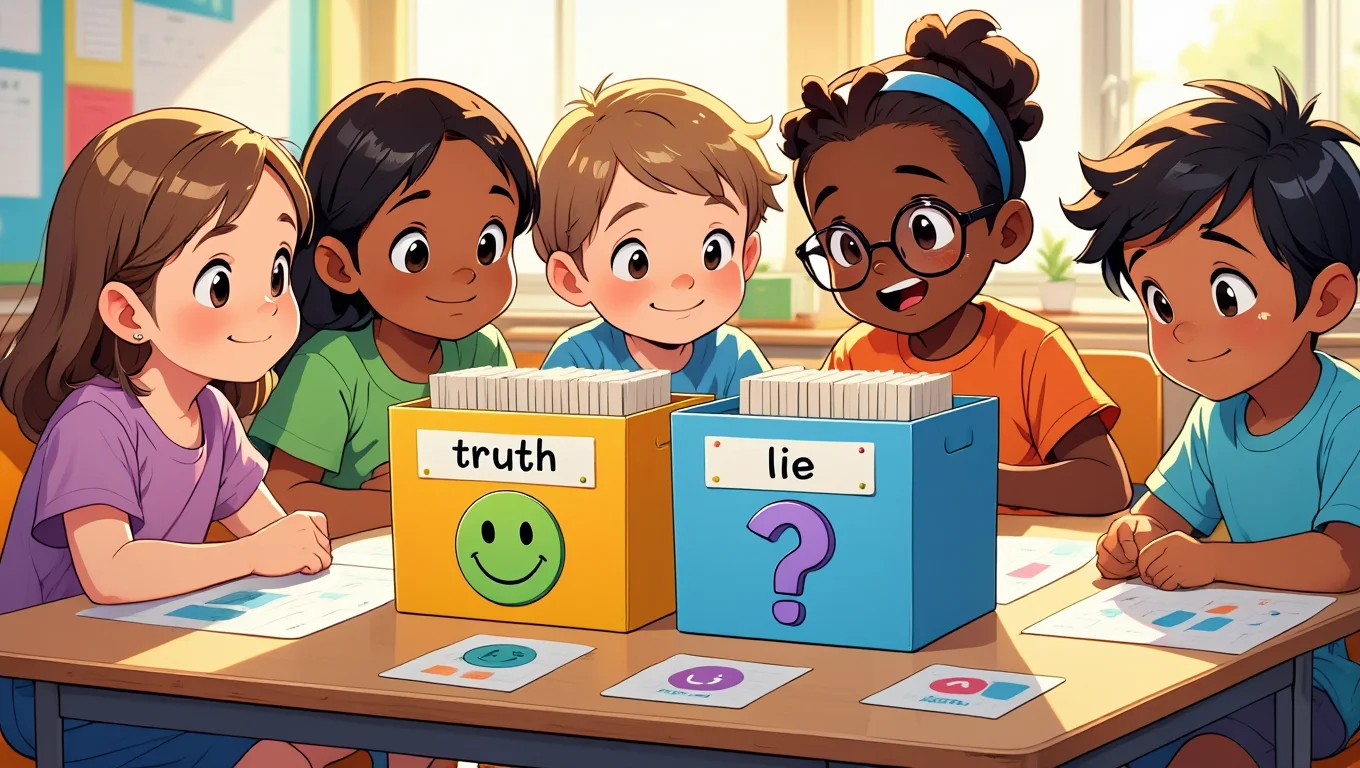
Make cards that have short sentences on them. Some should be true, and some should be lies. Let kids take turns picking a card and deciding if it is the truth or a lie.
They can place it in the right pile. This fun game helps kids understand how to tell the truth and why it matters. It also helps them practice merely making smart choices.
4. Story Time with Moral Questions
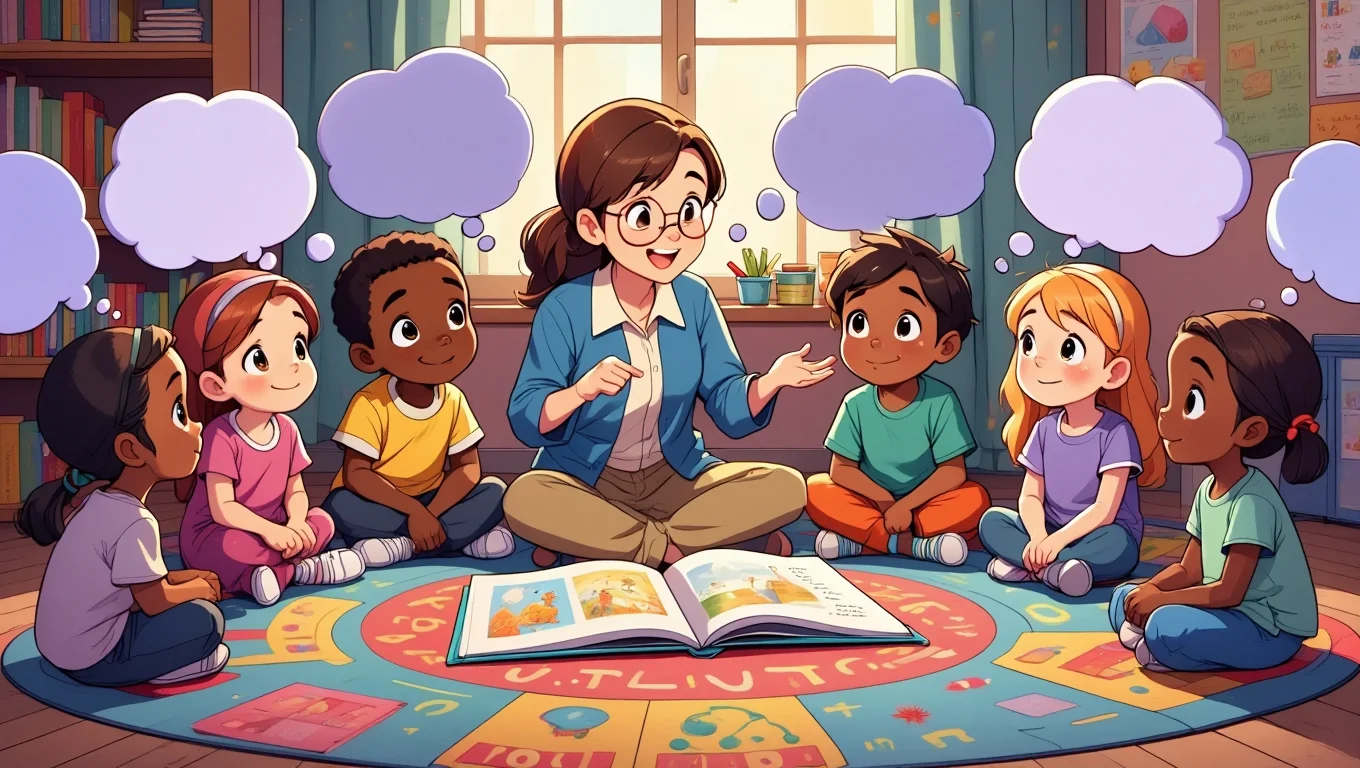
Choose a story where the characters face a choice between right and wrong. After reading, ask the kids questions like, “Was the character honest?” or “What would you do in that situation?”
This helps kids talk about big ideas in a way that is easy to understand. It also helps them think about what integrity means in their own lives.
5. Integrity Bingo
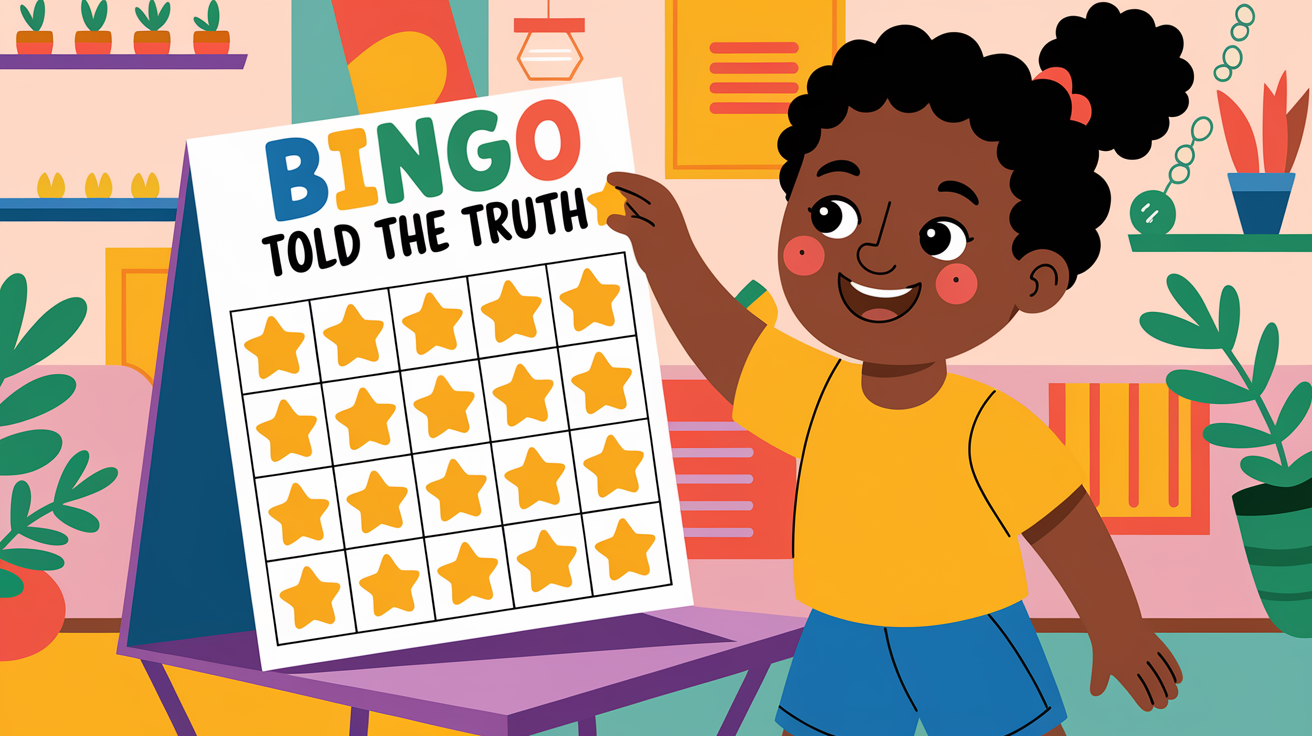
Make a bingo card with actions that show good character, like “Told the truth,” “Helped a friend,” or “Admitted a mistake.” When a child does one of these things, they mark it off on their card.
When they get a full row, they can win a small prize or extra playtime. This game makes learning about integrity fun and encourages kids to make good choices every day.
6. Kindness Chain

Give kids a paper strip each time they do something kind, helpful, or honest. They can write or draw on the strip and then connect it to others to make a paper chain.
Hang the chain in the classroom or home where everyone can see it grow. This will show how small, good actions can come together to make something big, and it will help kids feel proud of their choices.
7. Responsibility Chart
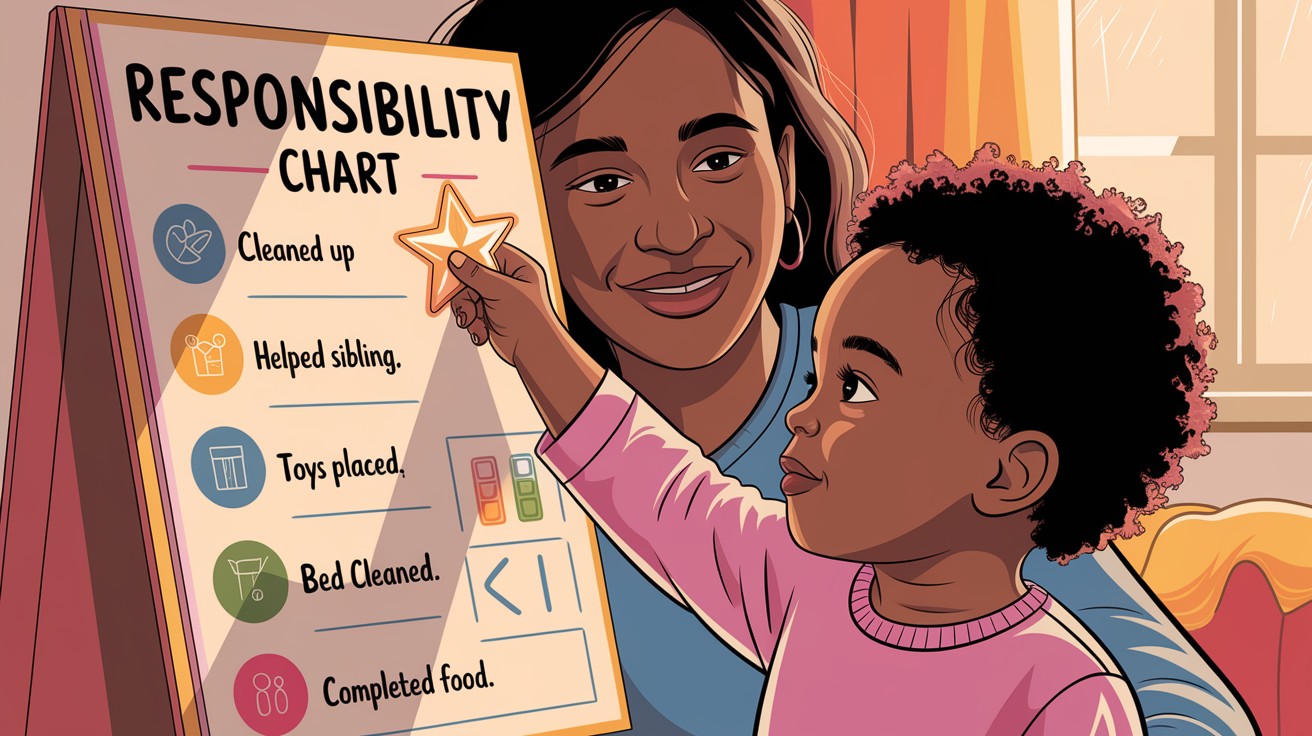
Create a chart with small tasks like “Cleaned up toys” or “Helped a sibling.” Each time a child does something on the chart without being told, they get a sticker or check mark.
At the end of the week, talk about how doing your job without being asked is part of being honest and responsible. This helps children learn that integrity also means taking care of their duties.
8. Promise Keeper Challenge
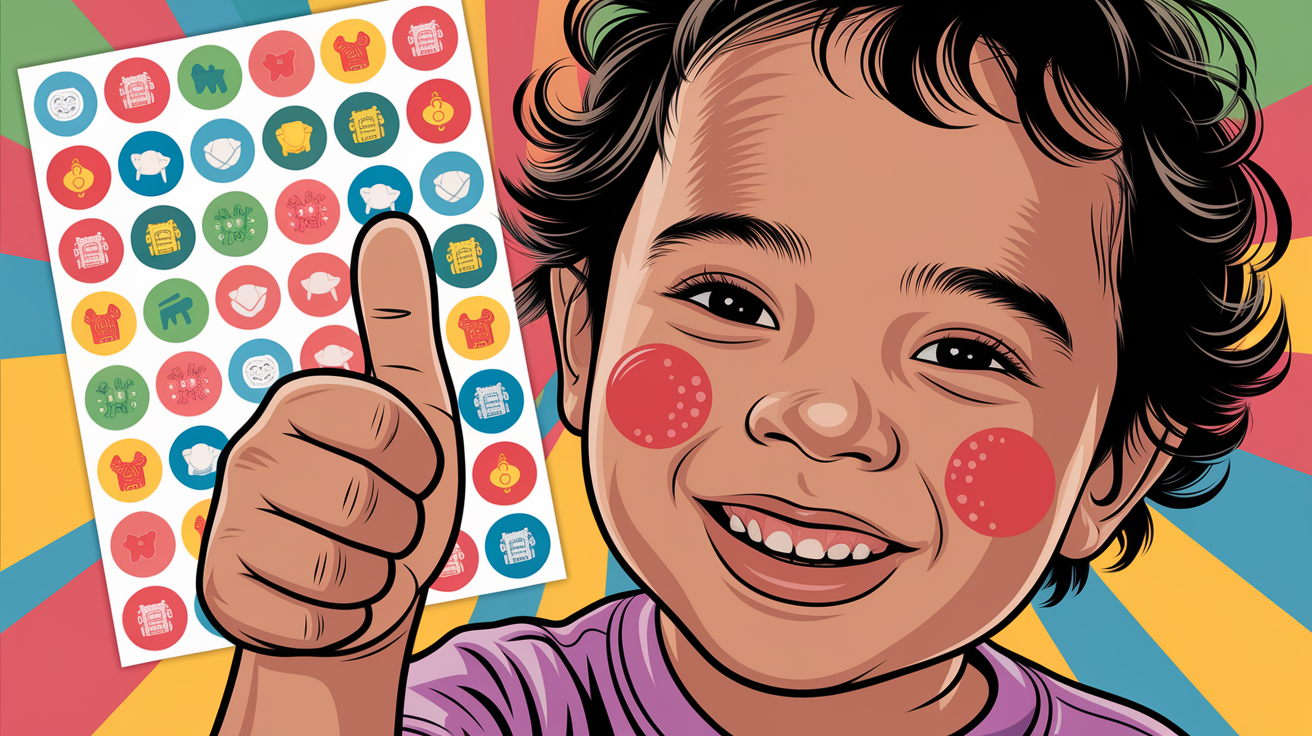
Ask each child to make one small promise for the day, like “I will be kind at lunch” or “I will not interrupt.” Check in with them to see if they kept their promise.
Praise their effort if they did, and if not, talk kindly about how they can try again. This teaches children that keeping promises is a way to show honesty and trust.
9. Real-Life Hero Discussion
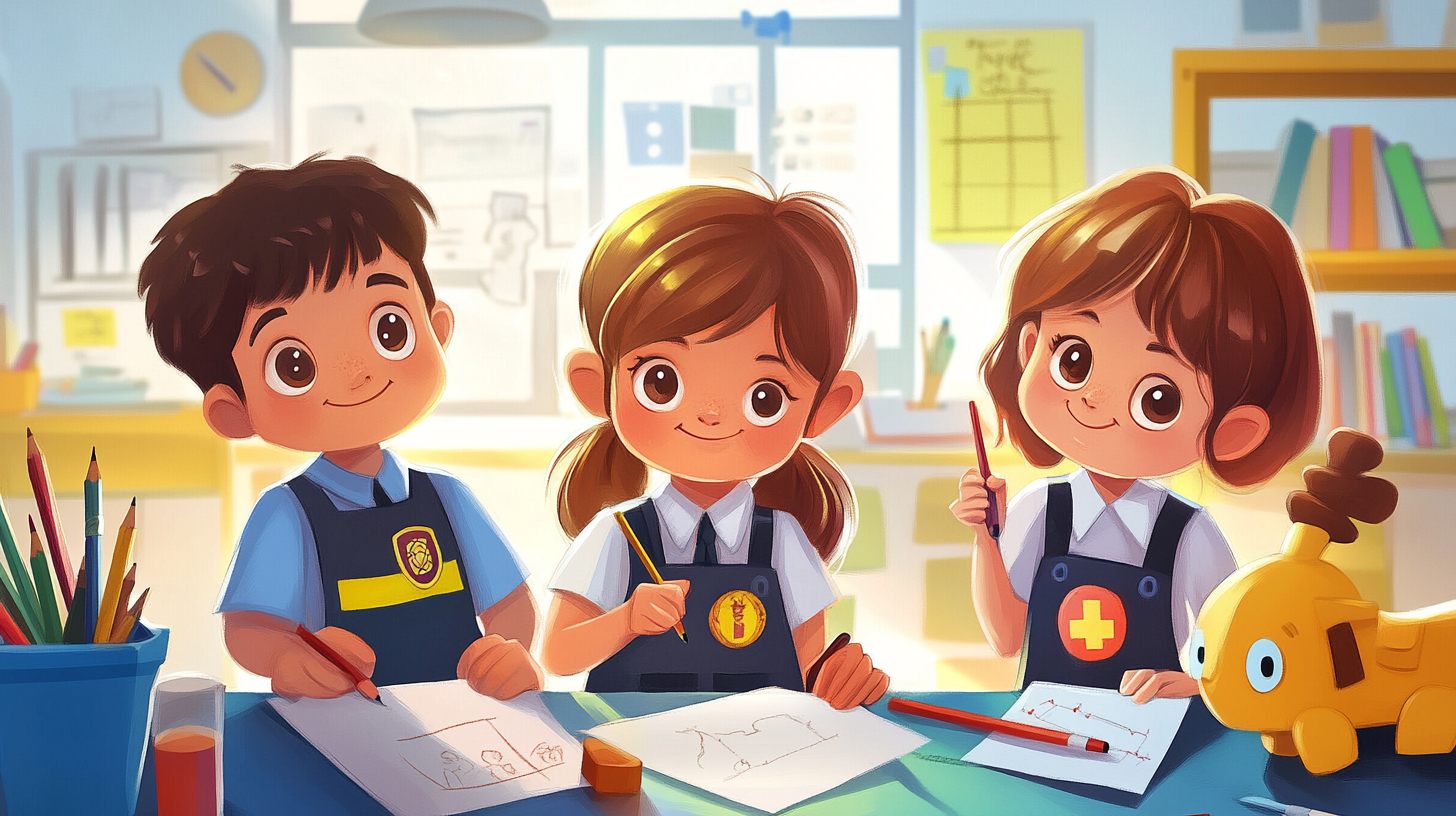
Talk with kids about real people they know, like teachers, doctors, or family members, who always try to do the right thing. Ask the kids what they like about these people and how they can be like them.
These talks help kids understand that integrity is real and something they can do too. They also give them role models to whom they can look up.
10. Consequence Mapping

Draw a simple map or chart that shows what can happen when someone makes a choice. For example, if a child lies, the chart might show that others may stop trusting them.
If they tell the truth, the chart could show stronger friendships or feelings of pride. Let kids help draw or explain the steps. This allows them understand that actions have results and that choosing honesty often leads to better outcomes.
11. Integrity Pledge Poster
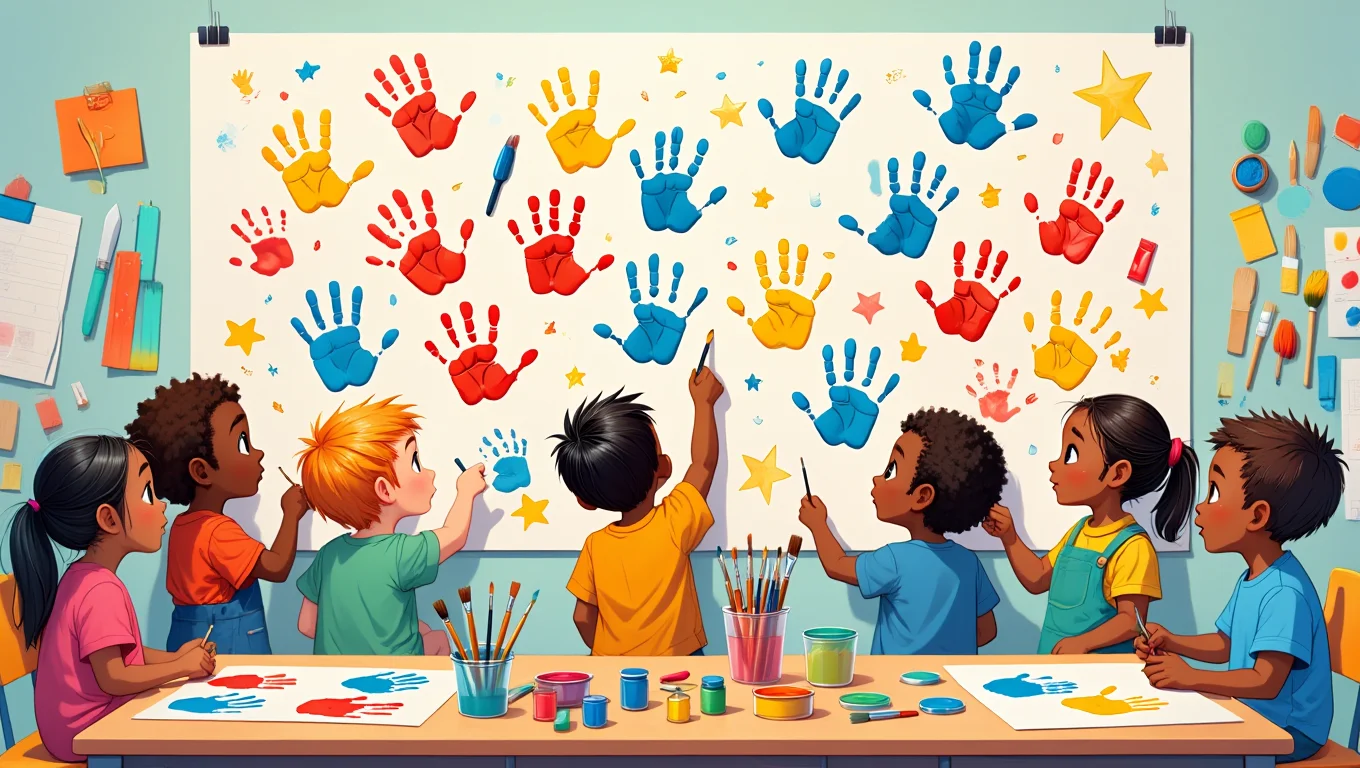
Create a large poster with a simple pledge, such as “I will be honest, kind, and do what is right even when it’s hard.” Let each child sign or decorate the poster with drawings or stickers.
Hang it somewhere everyone can see. This activity helps kids feel part of a team that values honesty. Signing the pledge makes them think more about their actions and want to live by the words they agreed to.
12. Act It Out Skits
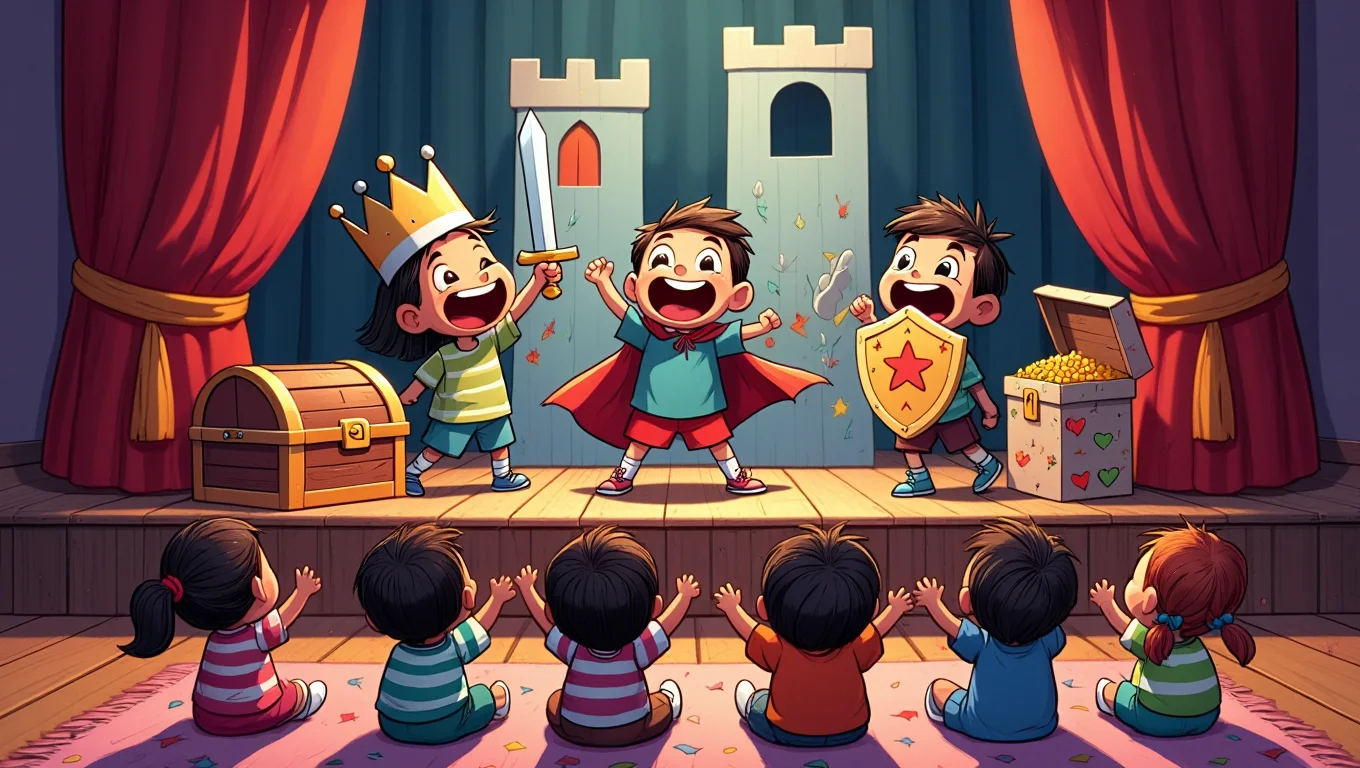
Split kids into small groups and give them simple situations to act out, like “Someone drops their book” or “A friend shares a secret.”
Let each group make the right choice. Then, let them act out what a wrong choice might look like. After each skit, talk about which actions show integrity. This gives kids a fun way to learn while practicing how to respond in everyday situations.
13. Value Sorting Cards
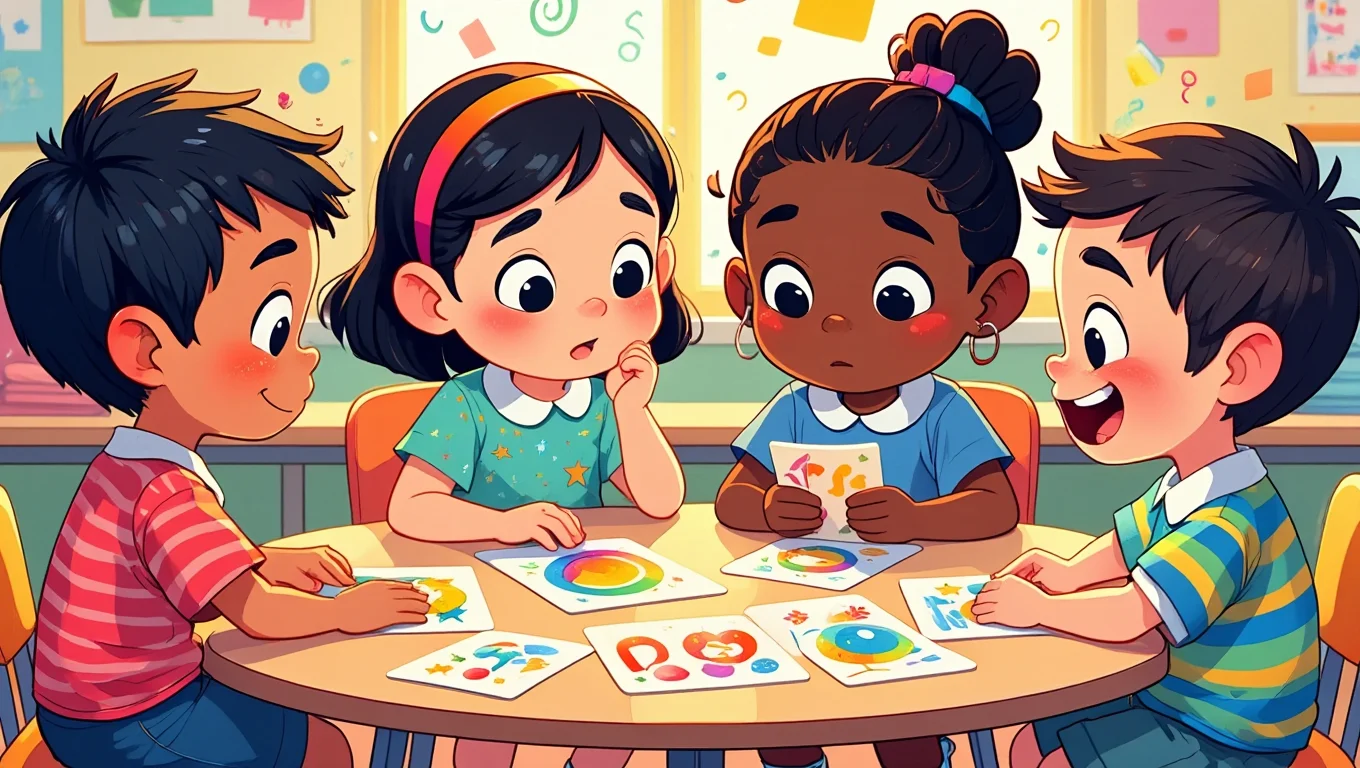
Create cards with values like honesty, sharing, fairness, bravery, and kindness. Let kids sort the cards into two piles—values that show integrity and values that don’t.
You can also include a few silly or wrong cards for fun. Talk with them about why each value matters and how it connects to being a good person. This activity builds thinking skills and helps kids know what’s right.
14. Group Decision-Making Game
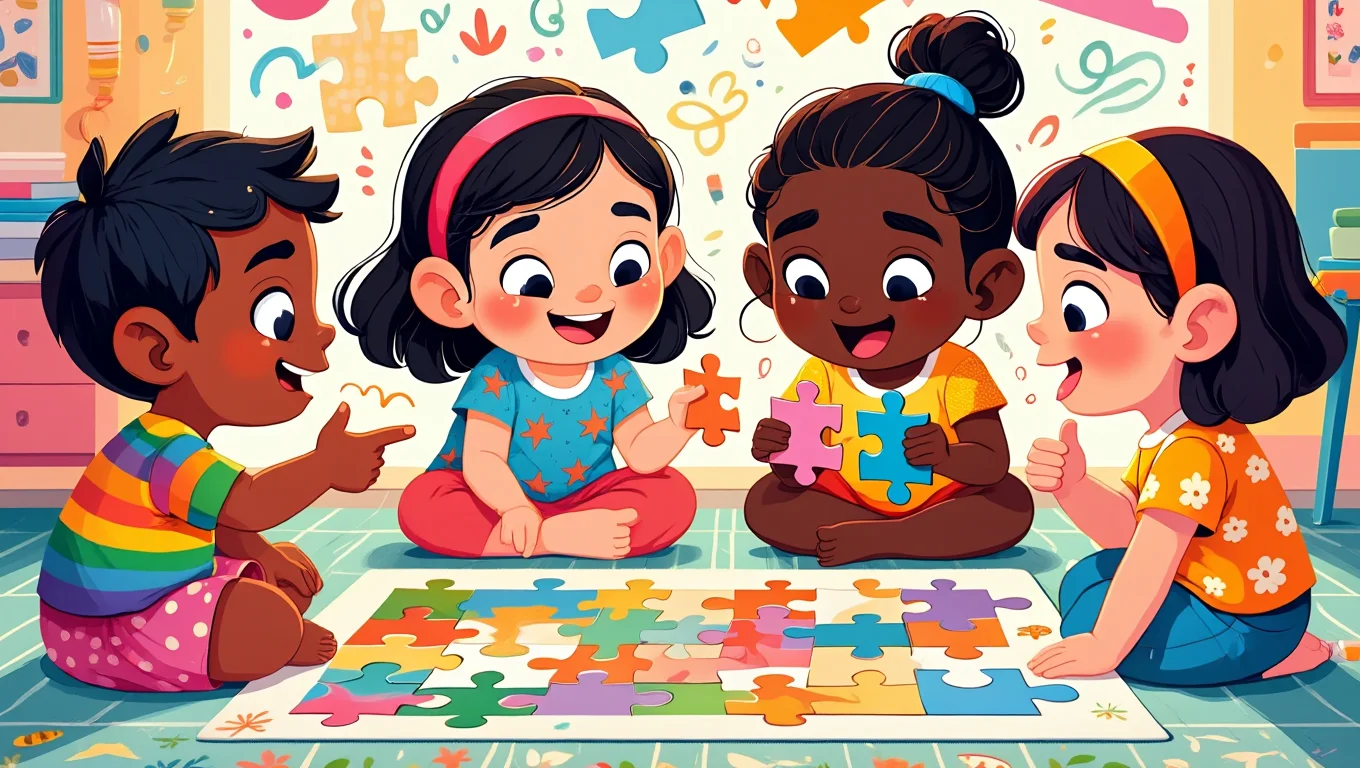
Give the group a pretend problem, such as “We found a toy with no name on it,” and ask them to solve it together.
Everyone should take turns sharing ideas and listening to others. Once the group agrees, they should discuss how they made the choice.
This teaches kids that working together and making fair choices are part of integrity. It also helps them practice listening and respect.
15. Weekly Integrity Goal
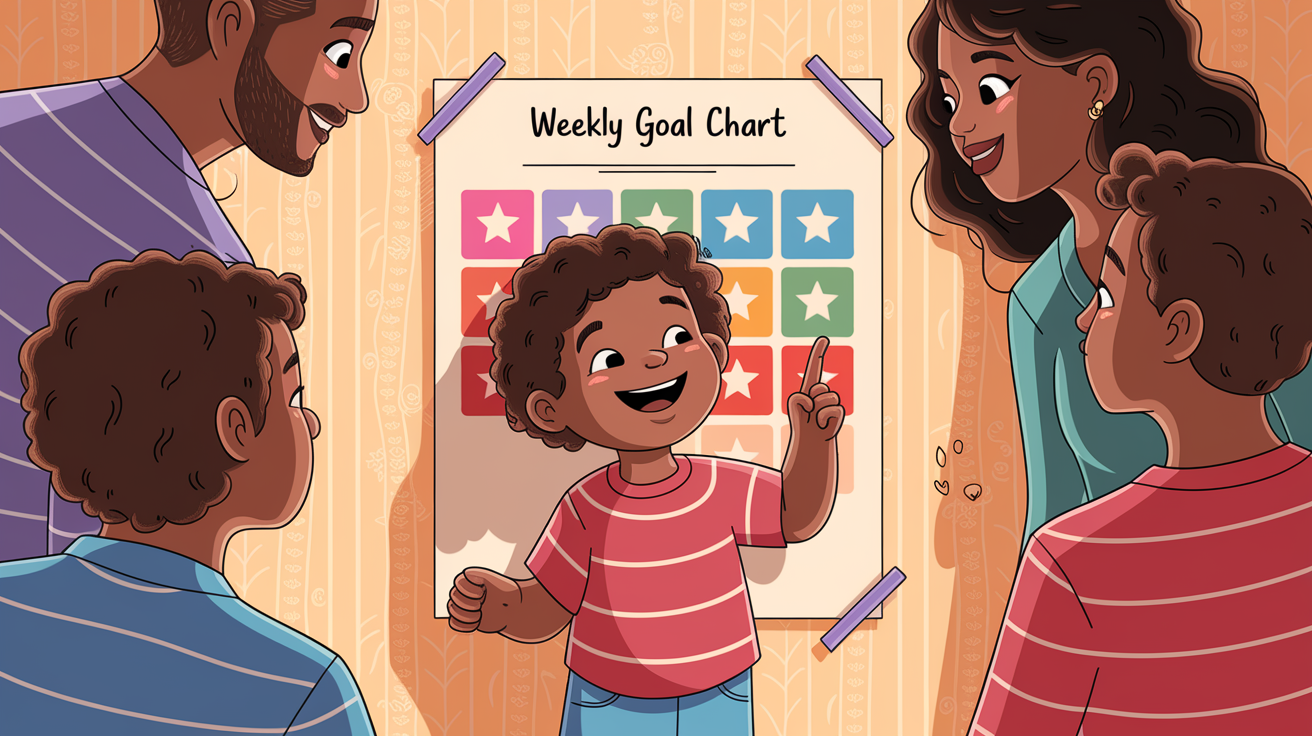
At the start of each week, help each child choose one goal that shows integrity, like “I will tell the truth all week” or “I will help someone every day.”
Please write it down and check in at the end of the week to discuss how it went. Celebrate their effort, no matter what. This builds habits over time and helps kids stay focused on being honest and kind every day.
16. Character-Building Journal

Give each child a small notebook to write or draw in. Each day or week, ask them to write about a time they did the right thing or saw someone else do it.
They can also write about times they made a mistake and what they learned. This activity helps kids think deeply about their choices and understand that even when they mess up, they can still grow and learn to be better.
17. Integrity Badge System

Make simple paper badges or stickers that say things like “Truth Teller” or “Kind Helper.” When a child shows honesty, kindness, or responsibility, could you give them a badge to wear for the day?
Let them earn different badges over time. This fun reward system helps children feel proud of their good choices and shows them that others notice when they do the right thing.
Integrity Vs Honesty: The Actual Difference
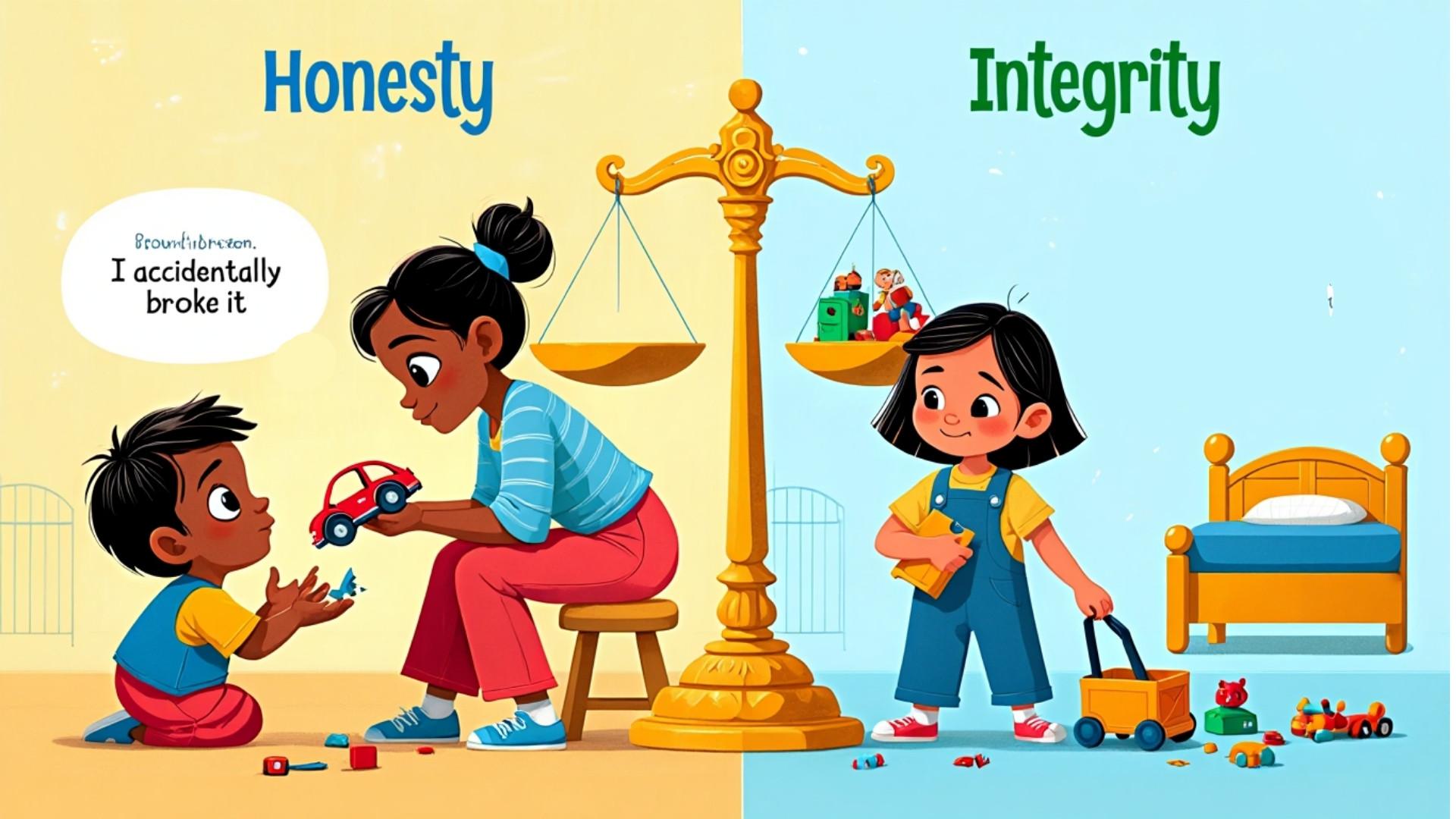
People sometimes think integrity and honesty mean the same thing, but they’re actually different values with important distinctions.
| TERMS | INTEGRITY VS HONESTY: THE ACTUAL DIFFERENCE |
|---|---|
| Definition | Integrity means doing the right thing in all situations based on moral principles, while honesty means telling the truth. |
| Scope | Integrity covers all actions and decisions, while honesty specifically relates to truthfulness in communication. |
| Action vs. Words | Integrity focuses on consistent moral behavior, while honesty focuses mainly on truthful words. |
| Completeness | Integrity requires honesty plus moral courage and consistency, while honesty alone doesn’t need other moral qualities. |
| Recognition | Integrity often goes unnoticed because it happens even when no one is watching, while honesty is more easily observed in conversations. |
While honesty is certainly part of integrity, integrity represents a broader commitment to living according to strong values in every situation.
Books Recommended by Experts to Develop Integrity
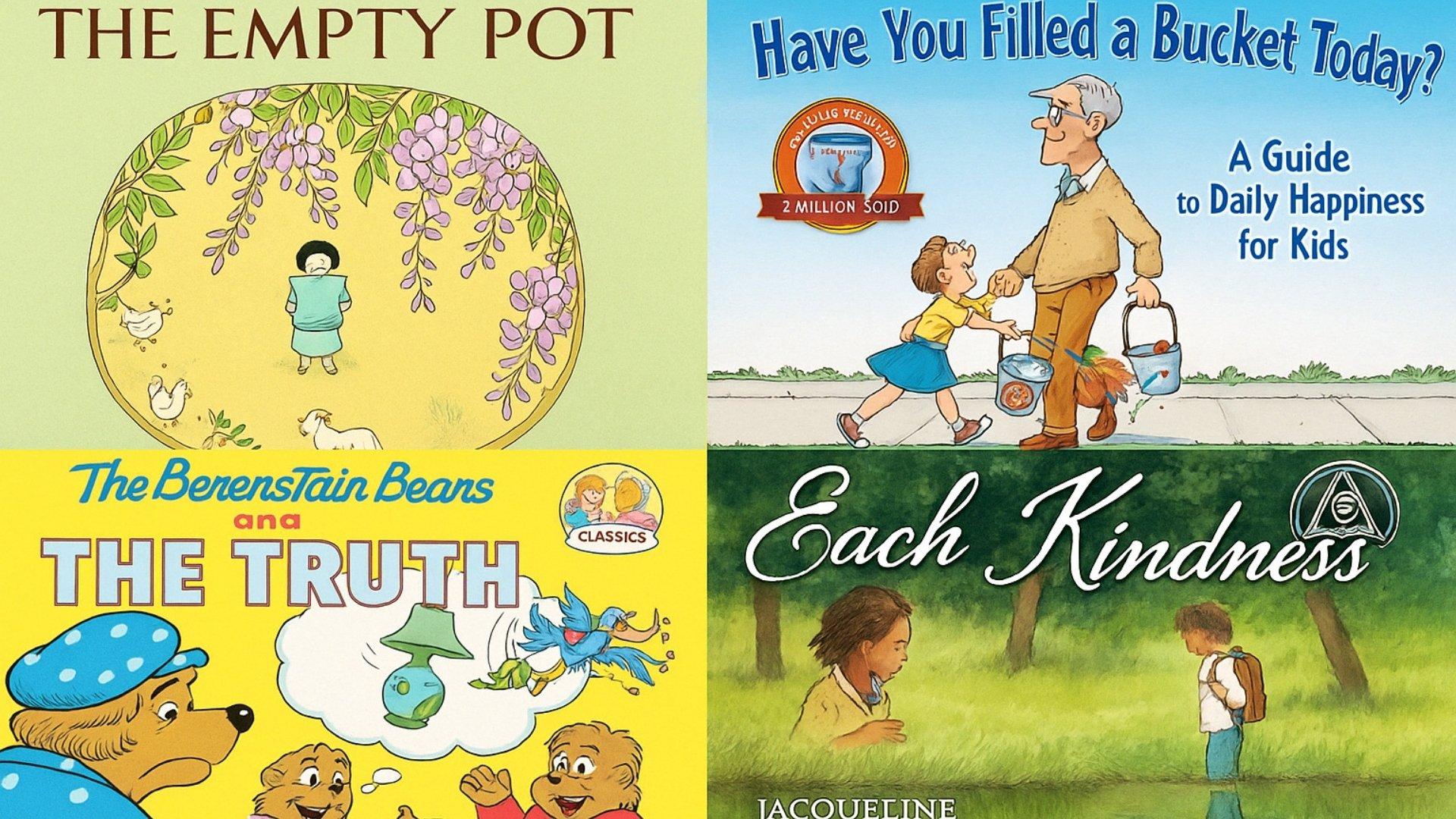
These carefully chosen books show characters guiding moral challenges and learning the value of truthfulness through engaging stories. Reading them together creates meaningful conversations where children can absorb integrity principles in ways that resonate with their experiences.
1. The Empty Pot by Demi
This beautiful Chinese story tells about a boy named Ping who shows integrity when the Emperor gives him seeds. Despite his best efforts, his pot remains empty, but his honesty about his failure leads to an unexpected reward.
After reading the story together, ask children to reflect on times when telling the truth was difficult but ultimately the right choice, helping them connect Ping’s experience to their own lives.
2. Have You Filled a Bucket Today? by Carol McCloud
This popular book teaches children about kindness and integrity through the concept of invisible “buckets” that hold good feelings. Children learn how their choices affect others and themselves.
The colorful illustrations and simple metaphor help even young children understand how their words and actions have real consequences, creating opportunities to discuss integrity as treating others with respect and consideration.
3. The Berenstain Bears and the Truth by Stan and Jan Berenstain
Brother and Sister Bear learn an important lesson about telling the truth after breaking a lamp and trying to hide what happened. This classic story helps children understand why honesty matters.
The story provides a perfect opportunity to discuss with children how one small lie can lead to more complicated ones, and how the relief of telling the truth, even when it’s difficult, builds trust and strengthens relationships.
4. Each Kindness by Jacqueline Woodson
This powerful book shows how our actions (or lack of action) affect others. When a new girl comes to school and is ignored, the main character misses chances to show kindness and learns a valuable lesson about integrity.
Reading these books together provides wonderful opportunities for meaningful conversations about making good choices and developing strong character, even when faced with difficult situations.
The Bottom Line
Integrity might sound like a big word, but it simply means choosing to do what’s right because it’s right. When children develop integrity, they gain an inner strength that helps them face life’s challenges with confidence and character.
Parents and teachers can nurture integrity through everyday conversations, consistent examples, and gentle guidance when mistakes happen.
By valuing and practicing integrity from an early age, children develop a moral compass that will guide them throughout their lives and help them build meaningful relationships based on trust and respect.
Start today by choosing just one activity from this guide and trying it with the children in your life. Small, consistent actions are the building blocks of strong character.
For more Education and Learning blogs, feel free to click here.

